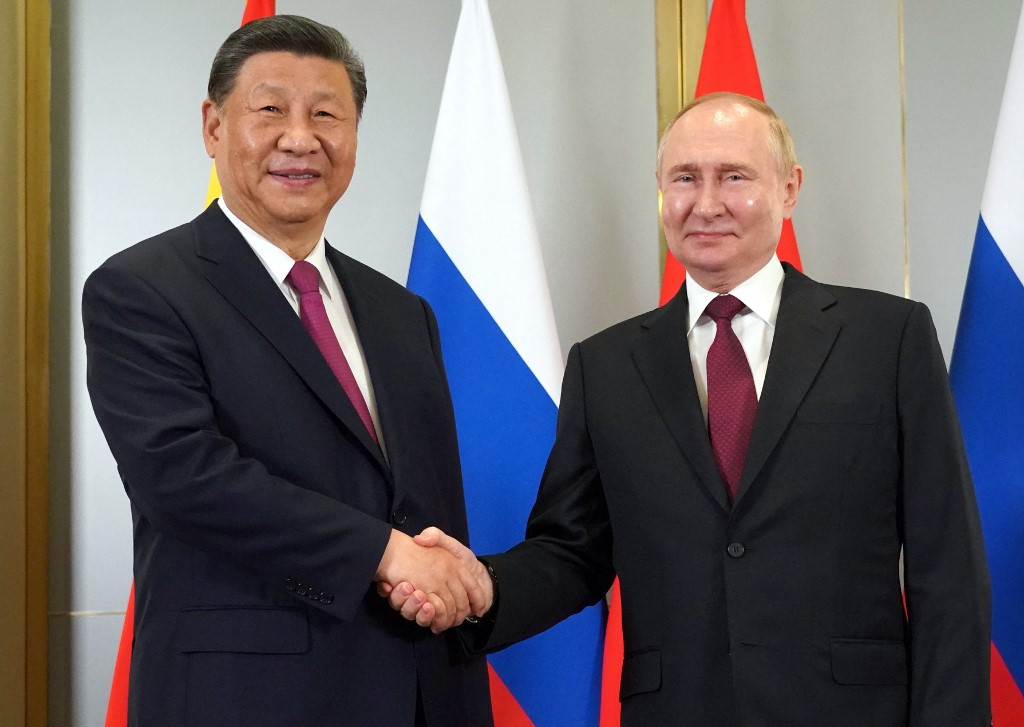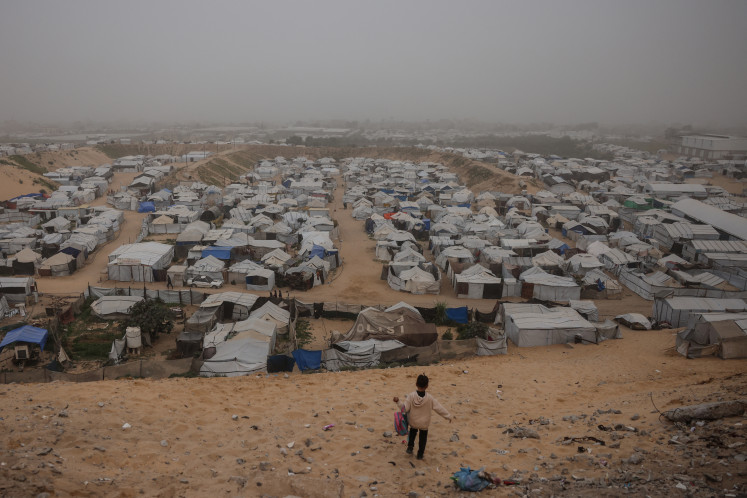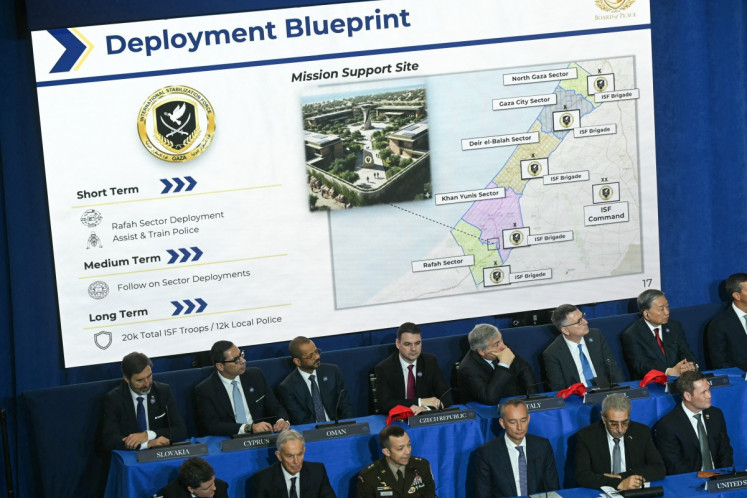Popular Reads
Top Results
Can't find what you're looking for?
View all search resultsPopular Reads
Top Results
Can't find what you're looking for?
View all search resultsPutin and Xi headline summit with anti-Western stance
Putin and Xi regularly meet under the aegis of the Shanghai Cooperation Organisation (SCO) alliance, whose latest session is being held in Kazakhstan's capital city of Astana.
Change text size
Gift Premium Articles
to Anyone
R
ussian President Vladimir Putin and Chinese counterpart Xi Jinping were set to participate Thursday in a regional summit in Central Asia bringing together numerous countries opposed to the West.
Putin and Xi regularly meet under the aegis of the Shanghai Cooperation Organisation (SCO) alliance, whose latest session is being held in Kazakhstan's capital city of Astana.
Turkish President Recep Tayyip Erdogan is also attending, since his country is a "dialogue partner" with the bloc, whose full members including ex-Soviet Central Asian states, India, China, Russia and Iran.
On Wednesday, Putin had bilateral meetings with Erdogan and Xi ahead of the main session, telling the Chinese leader that the Shanghai alliance was strengthening its role as "one of the key pillars of a fair multipolar world order".
Both countries have railed against what they call US-led "hegemony" on the world stage.
Xi, criticised in the West for his growing support for Moscow, told Putin Wednesday he was delighted to see his "old friend" again.
Erdogan also met Putin on the sidelines Wednesday, inviting him to Turkey and calling for a "fair peace that can satisfy both sides" in Ukraine. The Turkish leader has sought to mediate between the warring countries.
Indian Prime Minister Narendra Modi is not attending.
Competition with West
The SCO was founded in 2001 but has come to prominence in recent years. Its nine full member countries are China, India, Iran, Russia, Kazakhstan, Kyrgyzstan, Uzbekistan, Pakistan and Tajikistan.
It is intended to be a platform for cooperation in competition with the West, with a focus on security and economics.
A year after Western-sanctioned Iran joined as a full member, Belarus, also ostracised for its backing for Russia's war in Ukraine, will become the 10th full member Thursday.
Belarusian President Alexander Lukashenko in an interview with Kazakh media praised the alliance for "demonstrating to the world that there are alternative international platforms, different centres of power".
The alliance claims to represent 40 percent of the global population and about 30 percent of its GDP but it is a disparate group with many internal disagreements including territorial disputes.
While Russia and China are united against Western domination, they are economic competitors in Central Asia, a region rich in oil and gas that is also a crucial transport route between Asia and Europe.
Alternative routes
The summit includes Gulf states among its "dialogue partners" and in a sign of its growing importance, United Nations Secretary General Antonio Guterres is set to address delegates Thursday.
With the event's security focus, Afghanistan is a likely topic. It has observer status in the SCO but has been absent since the Taliban took power in 2021.
None of the members have formally recognised the Taliban government but China has named an ambassador to Kabul, Kazakhstan has removed the Taliban from its list of banned organisations and Moscow has said it will do the same.
But the SCO's main thrust is economic ties between member countries and developing giant projects to link up China and Europe via Central Asia.
Russia's invasion of Ukraine has increased major powers' interest in the region, where Moscow is seeking to maintain its traditional sway but where China now has strong ties through its flagship Belt and Road infrastructure project, while the West is also vying for influence.
Western sanctions against Russia have blocked much-used transport links between China and Europe and prompted the European Union to seek alternative routes including through Central Asia.










